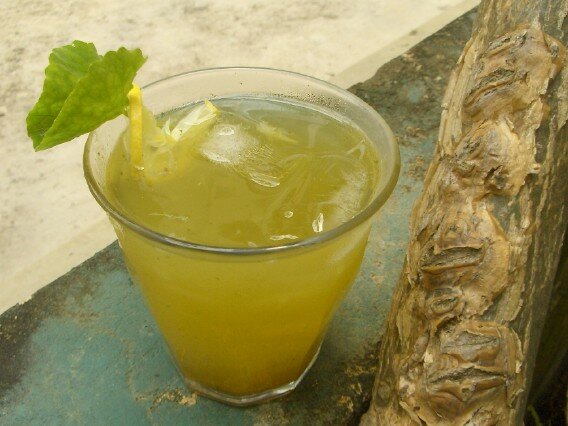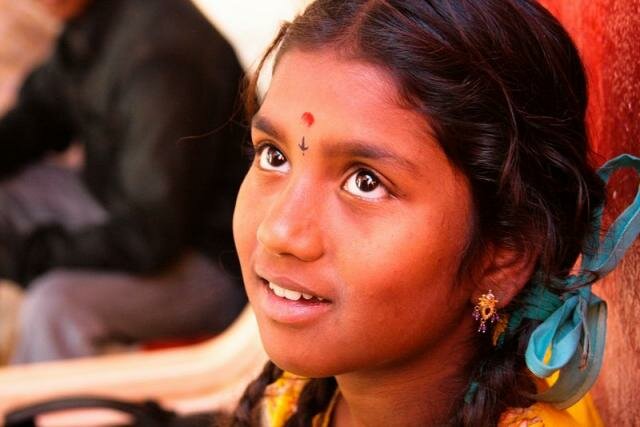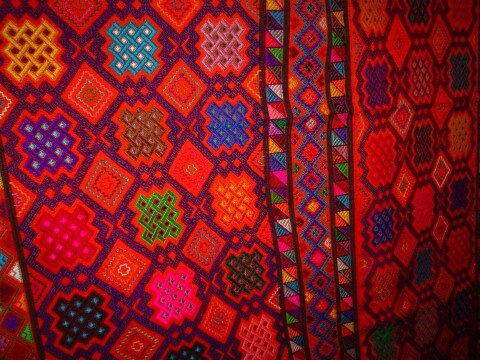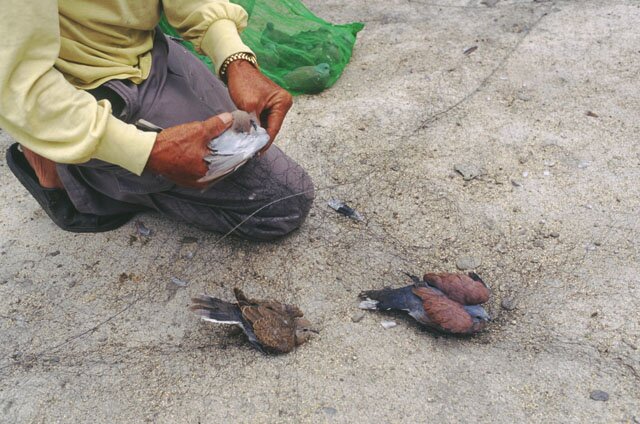BROWSE COUNTRIES/ TERRITORIES
Somaly Mam: telling the story of Cambodian women
We are made of stories. We recount them, understand them, remember them, and live them.
In the canonical image of villagers sitting around a fire at night, everyone is listening to the storyteller narrate the tales of the day or the season.
Somaly Mam is a Cambodian storyteller.
She does not sit around fires, but kids in Kompong Cham Centre always surround her. She does not need to set the scene or build up tension; her tales are all desperately sad. In her stories, there is no prince to rescue the fair maiden; she alone has to come face-to-face with the horrors of drunk, middle-aged men.
When Somaly was 12, a man who claimed to be her grandfather sold her to a pimp and forced her into prostitution. For almost 10 years she was starved, beaten, held at gunpoint, fed maggots and electrocuted, because she refused to follow orders from meebons or “madams of prostitution”. Her story echoes those of thousands of Cambodian women and children who live such brutal conditions everyday.
Somaly shared her horrifying account recently in a dialogue session organised by Lexis Nexis and Singapore Council of Women’s Organizations. Her outstanding work in combating sex trafficking has been recognised internationally. The recipient of several awards, including the Prince of Asturias Award for International Cooperation and The World’s Children’s Prize for the Rights of the Child, she is also a CNN Hero and ranked by Time magazine as one of the 100 most influential people of 2009.

Somaly at the dialogue session
Efforts to curb sex trade
According to the United States State Department’s 2008 Trafficking in Persons Report, between 1.2 and 2 million people are currently exploited in the global sex trade. It is estimated that 50,000 to 100,000 women and children are stuck in this kind of modern-day slavery in Cambodia. The country is a top destination for child-sex tourists, with increasing reports of Asian men travelling to Cambodia to buy sex with underage virgin girls. Girls as young as four years old are sold by their families for as little as US$10. These girls enter prostitution, and are raped nightly and beaten routinely.
For years, Cambodia has been struggling to get out of the quagmire of the sex trade. But for a poor country dogged by poverty and the culture of indebtedness, most women have no choice but to bite the bullet. The prostitution business in Cambodia is worth US$500 million a year, as much as the annual state budget.
Pressure from the United States and other Western countries pushed the Cambodian government to pass a law against human trafficking and sexual exploitation in February 2008. The flaw of the regulation, however, is its criminalisation of prostitution, which has led to massive closures of brothels and widespread human rights abuses against sex workers.
Raids conducted by the police have been atrocious and demeaning. Reports say condoms are being used as evidence of sex work and carrying of condoms leads to arrest or forced "rehabilitation." For women, this meant being beaten viciously, robbed and raped by police officers themselves in detention and rehabilitation centres. Also, as a result of such condom confiscation, national HIV-prevention programmes have completely collapsed. Punishing sex workers is counter-productive in the battle against HIV/AIDS. Instead, the workers themselves should be involved and encouraged to practise safe sex.
Before she set up Agir pour les Femmes en Situation Precaire (AFESIP), Somaly used to pretend to be a nurse from Médecins Sans Frontières to hand out condoms to the girls in the brothels. Then with AFESIP’s creation in 1996, her team regularly visited prostitution areas to distribute condoms and other hygienic and sanitary items, as well as raise HIV/AIDS awareness. Since the law was passed last year, however, hundreds of boxes have been left untouched and unopened in the AFESIP centres.
A tale of spirit and beauty
In her memoir “The Road of Lost Innocence”, Somaly writes:
This is Cambodia: If you are a girl you owe obedience to your parents. If your family requires you to sell your body on the side of the road so that your younger brother can go to school – or so your mother can gamble – that is what you do.
The transactions in red-light districts and back alleys have always ultimately been based on the same pathetic reality: poor women – lots of them in overpopulated countries where the female race is little valued – must peddle their bodies and their dignity to whoever who the power to demand them.
Women in Cambodia are taught to be like the silk cotton tree (dam kor) – deaf, dumb and blind to pain, Somaly says. “No matter how much it hurts, it’s best to stay quiet. To survive, you must be silent.”
Somaly has helped changed this social construct. Her powerful voice committed to help end sexual slavery and human trafficking has saved more than 4,000 women and children in Cambodia, Laos, Vietnam and Thailand.
Her relentless efforts have diminished the social stigma cast on victims and given them a chance to dream and seek better lives. She has made an important stride in confronting the reality of her own life and her country.
“… I only want to change this small life that I see standing in front of me, which is suffering. I want to change this small real thing that is the destiny of one little girl. And then another, and another, because if I didn’t I wouldn’t be able to live with myself.”
Someone in the crowd asked what she wanted out of the dialogue session. Somaly smiled, gazed at the audience, and said: “I’m just sharing my story so you can share it to others. Maybe you know someone who goes to a brothel; at least he will know our story.”
For more information on Somaly Mam and Agir pour les Femmes en Situation Precaire (AFESIP), visit:
www.afesip.org
www.somaly.org
Photo by A Couple of Photographers / PrimeTime
Related Story:
Login or Register
 A Filipino now based overseas in Singapore, Carmela Mendoza is one of the online editors of theasiamag.com. She used to work for the Foundation for IT Education and Development in the Philippines.
A Filipino now based overseas in Singapore, Carmela Mendoza is one of the online editors of theasiamag.com. She used to work for the Foundation for IT Education and Development in the Philippines.
- Asian Dynasties and History
- Conservation of the Environment
- Definition: Culture
- Economy and Economics
- Food and Recipe
- Geopolitics and Strategic Relations
- Health and Body
- Of Government and Politics
- Religion and Practices
- Social Injustices and Poverty Report
- Society, Class and Division
- Unrest, Conflicts and Wars































 Another Point
Another Point From Jerusalem to the West Bank
From Jerusalem to the West Bank
Comments
Post new comment